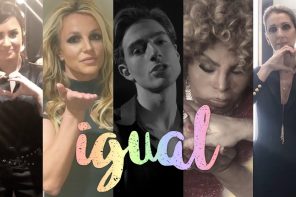For H.A. Hellyer’s full coverage for RD from Cairo, click here.
It’s quite fascinating to see the role of religion and religious figures over the past week in Egypt. Certainly, the state in Egypt has mentioned the Muslim Brotherhood (Ikhwan al-Muslimeen) many times over the years, voicing the fear that in the event that the ruling National Democratic Party fell, Egypt would turn into an Arab version of Iran — a fear that was repeated many times over the last few days by the right-wing press all over the world.
There have been other things said relating to religious figures or organizations that are to be taken with a heavy dose of salt. Some in the Egyptian pro-Mubarak camp argued that Hizbollah from Lebanon were the ones responsible for opening the prisons in Egypt over the past week, and others played up that the Iranian president congratulated the protesters and hoped they would establish an “Islamic state” in Egypt.
One wonders, though, if the commentators actually realize what Egyptian society is really like. Over the past week, Egyptians have piled out onto the streets; by day, many of them are at Liberation Square, protesting against the ruling establishment, and by night, many of them are patrolling their streets and guarding their neighborhoods, in a spontaneous demonstration of civil defense. It was necessary: the Egyptian state had called the police off the streets, and Egyptians refused to stay in their homes, waiting for an attack from an escaped convict or armed thug.
Many of those who were out and about were quite religious people — the Muslims were praying in the streets when it came time for prayer, and they were being guarded by their Christian compatriots. The Coptic Church called on Christians in Egypt to stay away from protests, and was promptly ignored by many of their youth, who argued they were just as Egyptian as any other and needed to be part of this movement for change. When Muslim religious figures came on state-run television to speak, many of the Muslim youth on the street derided them.
And many of those youth were keeping their canonical prayers, but were not from Islamist movements. They were from all classes of society, and from all educational strata. Many of the men on the streets around me were educated at Egypt’s elite universities, apolitical, and were chic, fashionable men with good jobs, coming from well-known families. These are the “secular elite” of Egypt; and when it came time to pray, they discreetly snuck away to pray, without showing their religiosity as some sort of badge, and returning a few minutes later to continue to guard their streets.
Religion meant something to them, indeed — but was it what everyone was afraid of?


